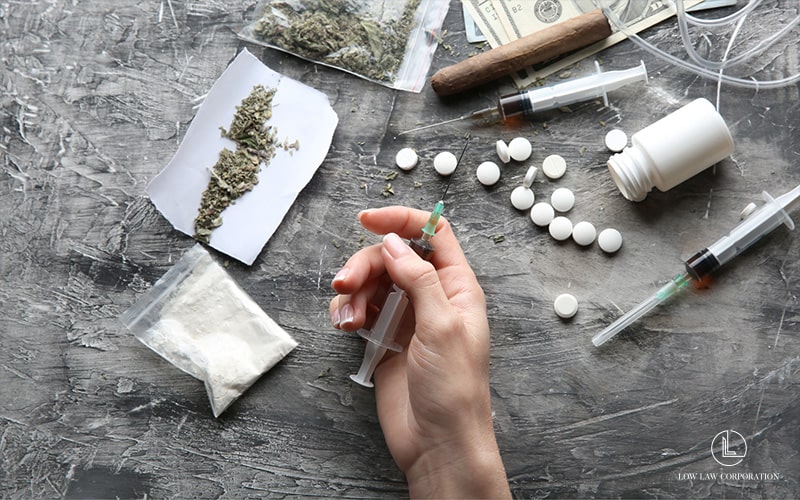Misuse Of Drugs Act in Singapore
The Misuse of Drugs Act (MDA) in Singapore represents one of the strictest drug control laws in the world, covering a range of drug-related offences and punishments. The Act is not only to penalise offenders but also to provide pathways for treatment and rehabilitation, where applicable. In this article, we’ll delve into the principles of the MDA, including drug possession, consumption, trafficking offences, and the various penalties under this law.
Overview of Drug Offences Under the MDA
The Misuse of Drugs Act in Singapore sets out different drug-related offences, covering:
- Trafficking
- Manufacturing
- Importation or Exportation
- Possession
- Consumption
Each of these offences carries serious consequences, with specific penalties depending on the drug type and offence severity. The law differentiates between various classes of drugs, imposing stricter penalties for more dangerous substances.
Different Drug Classes in Singapore
The Misuse of Drugs Act in Singapore categorises controlled substances into classes. Keep reading to learn more about the controlled substances law in Singapore:
-
Class A
Amphetamine, methamphetamine, ketamine, cannabis, MDMA (ecstasy), cocaine, morphine, opium, and mescaline.
-
Class B
Codeine, zipeprol, dextropropoxyphene, dihydrocodeine, nicocodeine, pholcodine, and phencyclidine (PCP).
-
Class C
Mephentermine, pipradrol, Alprazolam (Xanax), hexobarbital, pentobarbital, and triazolam (Halcion).
These classifications impact the severity of penalties, especially in offences such as trafficking and possession.
Common Drug Offences Under the MDA
1. Possession of Controlled Drugs
Under Section 8(a) of the MDA, possessing any controlled drug without authorisation is an offence. Depending on the type and quantity of the drug, a person found guilty of drug possession may face:
- Up to 10 years of imprisonment, a fine of up to $20,000, or both.
- Repeat offenders may face a minimum sentence of two years.
In drug possession cases, certain legal presumptions apply:
- Section 18 presumes a person found with drugs in their possession or control is aware of the drugs, placing the burden of proof on the accused to show otherwise.
- Section 21 outlines that any drugs found in a vehicle are in possession of the person in control of the vehicle.
2. Consumption of Controlled Drugs
According to Section 8(b) of the MDA, consuming a controlled drug is also a criminal offence. Penalties for drug consumption include:
- Up to 10 years of imprisonment, a fine of up to $20,000, or both, for a first offence.
- Repeat offenders face a mandatory three-year prison sentence.
Singapore has a unique approach to drug consumption. Even if a Singapore citizen or permanent resident consumes drugs abroad, they can be prosecuted if found to have drugs in their system upon returning to Singapore. Urine or hair samples may be used as evidence, and Section 22 presumes the consumption of any drug found in such samples.
3. Drug Trafficking
The Misuse of Drugs Act (MDA) in Singapore defines “trafficking” broadly under Section 2 as activities such as selling, transporting, distributing, or delivering controlled substances. Section 17 further establishes a presumption of intent if certain quantities of drugs are found in a person’s possession.
Drug trafficking penalties in Singapore vary significantly based on the drug’s class and quantity. Trafficking in large amounts of Class A drugs, for example, can lead to:
Lengthy prison sentences, caning, and in cases involving substantial amounts, even the mandatory death penalty.
Aggravating Factors and Sentencing in Drug Cases
Singapore’s judiciary considers various factors when determining sentences for drug offences. Aggravating factors that may result in harsher penalties encompass:
1. Previous Criminal Records
Repeat offenders will face stricter penalties.
2. Lack of Remorse
Courts may take a more punitive stance if the accused shows no remorse.
3. Multiple Charges
Those facing several drug-related charges could face cumulative penalties, leading to longer sentences.
For drug trafficking cases, the courts consider both the amount and type of drug, with harsher penalties for Class A substances and larger quantities.
Seeking Legal Assistance Under the MDA
From strict penalties for drug possession to severe consequences for trafficking, the Misuse of Drugs Act in Singapore serves as a deterrent to drug-related activities while offering rehabilitation for certain offenders. Given the gravity of these offences and the complex legal procedures, anyone facing drug charges should look for professional assistance. Consider a criminal law consultation to learn more about legal rights.
At Low Law Corporation, our experienced lawyers for criminal cases are dedicated to protecting your legal rights. By thoroughly analyzing the evidence against you, we provide strategic advice tailored to your situation and work toward achieving the best possible outcome.
Contact us now to discuss your case.



